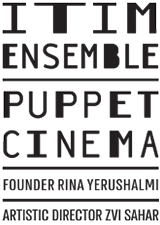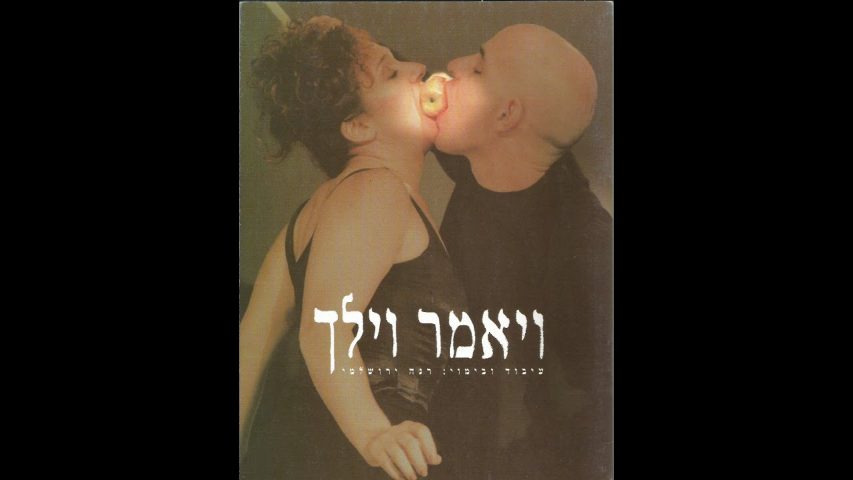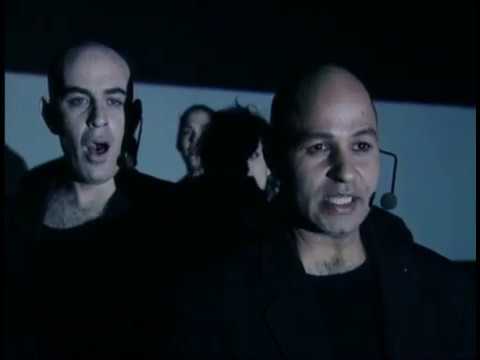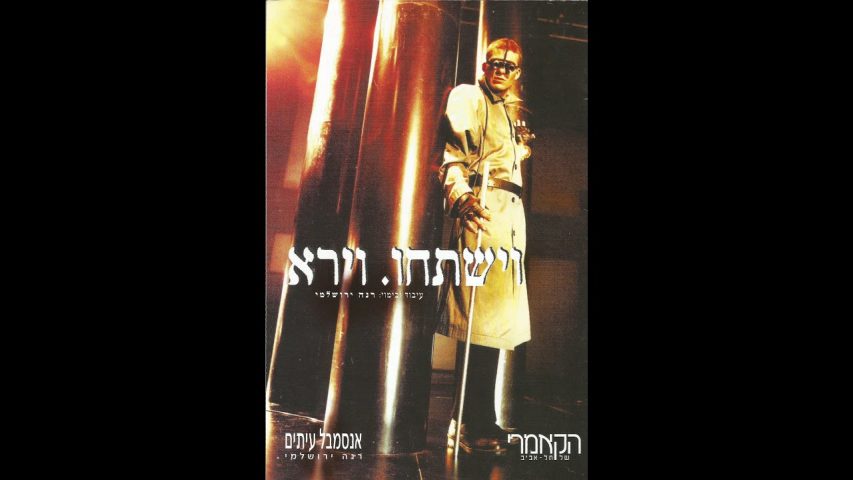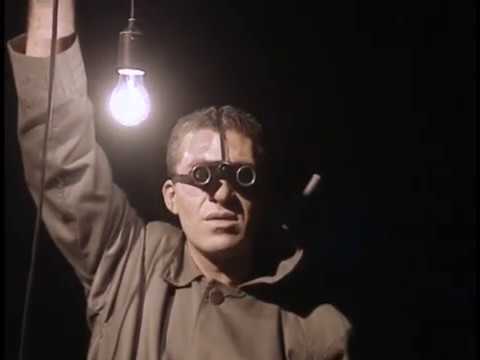About
The biblical text as it was written. The adaptation is done in short and sometimes the sequence of events is altered to give a different perspective on the event. For example, “Genesis” and the Ten Commandments conclude Part I.
The main idea was to discover theater as a show that is not based on story, characters, and dramatic conflict, but on language, actors, and so a list of rules or numbers can be part of the show. The audience that grew up on these texts, remember and do not remember like flipping through a family album. The audience surrounds the show floor on three sides as the actors sit between them.
It is important to note that all project partners and creators are secular people, who approach the Bible as a historical-cultural and personal biography.
Part I
Va Yomer
The biblical Old Testament text as written. The adaptation consists only of cuts and sometimes a change in the sequences order, in order to allow a different perspective on a given event. For example, “In the beginning god created” and the Ten Commandments end the first part.
The main matter was to discover theatre as a performance not based on narrative, characters and dramatic conflict, but on language and actors. Thus, a list of laws or of chronology of years can be a part of the performance. The audience, who grew up on these texts, remembers and does not remember, like leafing anew in an old family album. The audience encircles the performing floor from three sides, with the actors sitting amongst them.
It’s important to note that all the collaborators in the project and its creation are secular people, approaching the bible as an historical, cultural and personal biography.
Va Yomer (The bible project part 1) deals with the evolution of man and his world, with the creation of man, woman and family at its center. The peak of the relationships between God and his creatures is expressed in the covenant He makes with Man regarding the continuance of his, and the world’s, existence (after the flood).
Credits
Adapted and directed by Rina Yerushalmi.
Music: Israel Bright.
Set and space design: Dror Herrenson.
Lighting: Avi Yona Bueno (Bambi).
Sound design: Frankie Lievaart.
Cast (by alphabetical order): Lior Ben Avraham, Noam Ben Azar, Ruthi Bornstein, Avi Cohen, Yael Gaathon, Einat Gliksman, Emanuel Hanoun, Tzahala Kuras, Eran Sarel, Moisi Shumal, Iyar Wolpe, Netta Yaschin, Asnat Zibil.
וילך
המשפחה הופכת לשבט .הברית בין האדם והאל מתמקדת בהבטחה על יצירת העם וקיומו בארץ המובטחת.- המסע דרך המדבר , גיוס השבטים למלחמה כבוש הארץ והארץ המובטחת . הסיום לצלילי הטקסט “לך לך אל ארצך” כצווי בהווה מתמשך אל הארץ וממנה. בתנועה לשני הכוונים ,קדימה ואחורה בו זמנית.
קרדיטים
עיבוד ובימוי: רינה ירושלמי.
מוסיקה: ישראל ברייט.
עיצוב חלל ותפאורה: דרור הרנזון.
תאורה: אבי יונה בואנו(במבי).
עיצוב סאונד: פרנקי ליוורט.
שחקנים (לפי א-ב): בורנשטיין רותי. בן אברהם ליאור. בן אזר נעם. בן יוסף דבורית (יסינובסקי). גליקסמן עינת. געתון יעל. וולפה אייר. זיביל אסנת. חנון עמנואל. כהן אבי. קורס-חיימוביץ צהלה. שמואל מוייסי. שראל ערן.
Part III
Vayishtachu (And they bowed)
In a way, here starts a story of a single character and its tragic fate. In this sense, here is a possibility to create theatre with dramatic development. The people ask to crown an earthly king, who will wage war with them against the Philistines. The prophet Samuel tries to warn them against a monarchy, but God orders him to anoint Saul. Saul does not obey the command to destroy the Amalekites, and is abandoned by Samuel and God. The boy David sets out in his name to fight Goliath the Philistine, and wins. In the end, Saul falls on his sword and dies. The prophet Samuel crowns David in his stead.
Credits
Adapted and directed by Rina Yerushalmi.
Music: Arkadi Duchin.
Set and space design: Fror Herrenson.
Costumes: Renana Mishori-Zimbalista.
Lighting: Avi Yona Bueno (Bambi).
Sound design: Moshe Shasho.
Birds design: Yehudit Grinspan.
Butoh coach: Yori Ran.
Movement coach: Marina Beltov.
Speech: Noga Yatomi-Raviv.
Singing coach: Shosh Riseman.
Cast (by alphabetical order): Lior Ben Avraham, Noam Ben Azar, Ruthi Bornestein, Avi Cohen, Adina David, Yael Gaathon, Einat Gliksman, Emanuel Hanoun, Tzahala Kuras, Eran Sarel, Moisi Shumal, Iyar Wolpe / Carmit Mesilati, Netta Yaschin, Asnat Zibil.
וירא
מילה זו משמעותה כפולה: רואה , או: הוא חרד. גם כאן הפועל בזמן הווה מתמשך – עבר, הווה, עתיד. הבנה זו נתנה את האפשרות לבנות מהלך של שיבה וגלות בו זמנית בטקסט ובאירועים. הנביא יחזקאל בונה את המודל הראשון של תפאורה בנית המקדש במלים – באין ספור מדידות של כל פרט במבנה. וכך יוצר מציאות ותקווה בתודעת העם של השיבה לארץ.. ומנגד קורות מלוכת דוד ומשפחתו והמלכים שבאו אחריו ברשימה אין סופית של מי שעשה טוב בעיני האל ומי שעשה רע וכך גרמו לגלות בבל ולהרס המקדש. תנועה דו כיוונית בזמן ובמרחב של עבר ועתיד מתקיימים זה לצד זה על אותה במה. ומסתיים במלים “כמראה המראה אשר ראיתי” . התנועה הדו כיוונית מזכירה את “לך לך לארצך” והמנורה שביד כל אחד השחקנים להמשיך לראות….
קרדיטים
עיבוד ובימוי: רינה ירושלמי.
עיצוב חלל ותפאורה: דרור הרנזון.
מוסיקה: ארכדי דוכין.
תאורה: אבי יונה בואנו (במבי).
עיצוב תלבושות: רננה מישורי-צימבליסטה.
עיצוב סאונד: משה שאשו.
עיצוב צפורים: יהודית גרינשפן.
הדרכת בוטו: יורי רן.
הדרכת תנועה: מרינה בלטוב.
הדרכת דיבור: נגה יתומי.
הדרכת שירה: שוש רייזמן.
שחקנים (לפי א-ב): בורנשטיין רותי. בן אברהם ליאור. בן אזר נעם. בן יוסף דבורית (יסינובסקי). גליקסמן עינת. געתון יעל. דוד עדינה. חנון עמנואל. וולפה אייר/ מסילתי כרמית . כהן אבי. קורס-חיימוביץ צהלה. שמואל מוייסי. שראל ערן.


